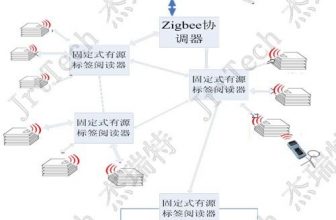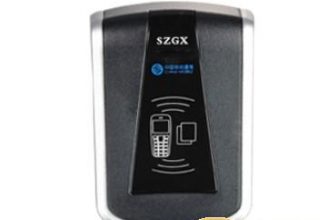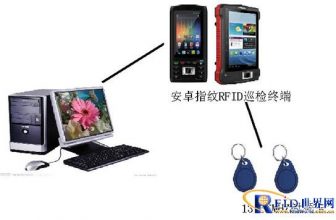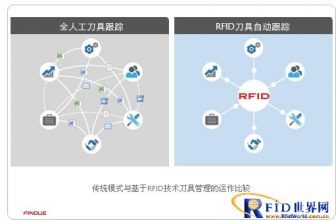
RFID warehouse management solutions for small and medium-sized enterprises
[ad_1]
At present, the domestic economic situation is not optimistic. Among them, the survival of private small and medium-sized enterprises is even more difficult. In addition to the impact of the economic situation, the low level of internal management of many companies directly leads to a low level of operation and cannot maintain a relative advantage in the fierce competition. These issues are rarely mentioned when the economy is improving and the company’s benefits are good. Today, with declining efficiency and lower profits, many small and medium-sized enterprises have begun to attach importance to their own management and construction to strengthen their competitiveness.

Tianjin Honeybee believes that the warehouse management of many small and medium-sized enterprises is still in a very backward stage, and the problems are mainly reflected in the following aspects:
1 Relevant information links cannot be connected
In the warehouse management of small and medium-sized enterprises, the goods bills of suppliers are often inconsistent with the goods in the warehouse. In many cases, this is because sometimes the goods have to be put into the warehouse sporadically, and then the invoices are exchanged when they are out of the warehouse at a time. However, this often requires multiple manual records by warehouse managers, which may cause accounting inconsistencies in the long run. When the goods are actually out of the warehouse, the bills do not match, the warehouse management personnel are not allowed to go out of the warehouse, and the business personnel are in a hurry like ants on a hot pot. There are many cases where similar information is not connected, so I won’t list them all here.
2 The inbound and outbound information is not updated in time
One of the “features” of warehouse management in small and medium-sized enterprises is the frequent occurrence of IOUs between the workshop and the warehouse. The root cause of this type of situation is often that the raw materials ordered by the workshop or the goods are not put into the warehouse in time, which leads to inconsistencies in the accounts. Bian urgently needed these raw materials for production, so IOU applications were born. Over time, there are more and more IOUs, and the lack of relevant personnel to be responsible for this business will often cause great financial troubles to the enterprise.
3 Low efficiency
The warehouse management of small and medium-sized enterprises is often more adequate in terms of manpower management, and the manpower usage of a warehouse is very sufficient. But it is only limited to physical handling. The investment in information entry is very weak. Some small and medium-sized enterprise warehouse management even let the staff responsible for the handling take charge of the recording work of inbound and outbound. This will lead to information errors and inbound. Errors in entering outbound information frequently occur, resulting in low efficiency in warehouse operations.
4 Unclear rights and responsibilities
In the warehouse management of small and medium-sized enterprises, the distribution of rights and responsibilities of personnel is often not very clear. This has problems in the enterprise’s own management as well as manpower considerations. However, if the rights and responsibilities are not made clear, it will frustrate the enthusiasm of some people, and at the same time, it will not be possible to evaluate the performance of personnel and affect the operational capabilities of the company.
Based on the analysis of domestic SME warehouse management problems, Tianjin Bee believes that the use of RFID technology can solve the above problems very effectively.

As we all know, RFID technology has powerful advantages that bar codes do not have. For example, one-time large-scale reading can work in harsh conditions and other technical advantages. However, this technology is rarely used in warehouse management for small and medium-sized enterprises. One of the main reasons is “cost” considerations.
However, the company only considered the initial hardware and system investment, but did not actually consider the adoption of RFID technology, which will be a qualitative leap in improving the warehouse management of small and medium-sized enterprises:
1 Great drop in labor costs
The warehouse management business volume of small and medium-sized enterprises is not very large. After the use of RFID technology, the process of goods delivery, storage, and inventory will be greatly shortened. Enterprises can significantly reduce labor costs and invest in other aspects of construction.
2 Realization of information synchronization
In the past, informatization was just a concept, and it was rarely realized. After applying RFID, companies can establish an informatization synchronization system to manage the cargo information in the warehouse with the relevant departments of the entire company, creating a closed loop of information synchronization, which is completely realized. Information management.
3 Solve the above warehouse management problems
After the application of RFID technology, the above-mentioned problems in the warehouse management of small and medium-sized enterprises will be completely solved. From the docking of information to personnel work assessment, to the docking of departments will become easy and quick, and completely break the bottleneck restricting the development of the enterprise.
[ad_2]






